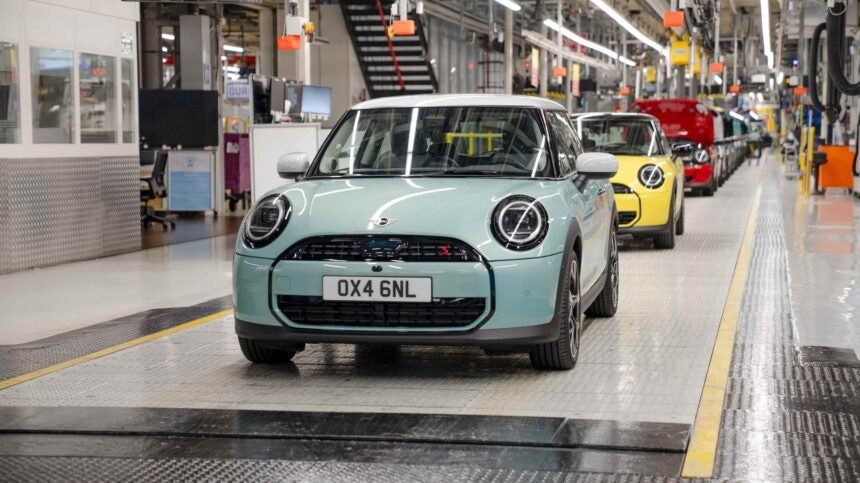The UK car and commercial vehicle production saw a significant increase of 17.1% in March, reaching a total of 79,018 units, according to data released by the Society of Motor Manufacturers and Traders (SMMT). This surge in production was attributed to a comparison with a weak March the previous year, which was impacted by fewer working days due to the Easter break and model changeovers.
Car manufacturing experienced growth for the first time in 12 months, driven by strong export demand that rose by 30.6%. Nearly three quarters (73.3%) of all output was shipped overseas, while production for the UK market declined by 6.1%. The production of electrified vehicles also saw a significant increase of 38.5%, accounting for almost half of all UK car output.
The proposed revisions to the Zero Emission Vehicle (ZEV) Mandate were welcomed by manufacturers, highlighting the challenges faced by the industry, particularly the lack of robust consumer demand for electric vehicles. The UK is a major producer of zero-emission commercial vehicles, and extensions to grants for plug-in vans and trucks are crucial for the growth of this market.
The European Union remained the largest destination for UK car exports, accounting for 57.2% of shipments. The United States, ahead of new tariffs, was the second largest export market at 15.0%, followed by China, Turkey, and Japan. Exports to these top five markets all saw an increase in March.
Commercial vehicle production also saw a rise of 8.2% to 8,700 units, driven by domestic demand, which increased by 77.9%. However, exports of commercial vehicles declined by 31.8%, with the EU remaining the largest market for these vehicles.
In the first quarter of 2025, overall UK car production was slightly down by 3.2%, while exports increased by 4.4%. Commercial vehicle output, on the other hand, saw a more significant decrease of 27.1%, with exports down by 50.3%. The industry faces uncertainty heading into the second quarter due to new US tariffs and weakening demand.
The SMMT emphasized the need for trade discussions to support jobs, demand, and growth on both sides of the Atlantic. The industry also highlighted the challenges posed by increased protectionism and retaliatory tariffs in key markets, calling for a rapid response from the government to address these issues.
Mike Hawes, SMMT Chief Executive, emphasized the importance of government support to maintain the competitiveness of the automotive manufacturing sector and spur demand for clean vehicles. The industry looks to navigate the new era of trade uncertainty with urgency and creativity to ensure growth and success in the future.






